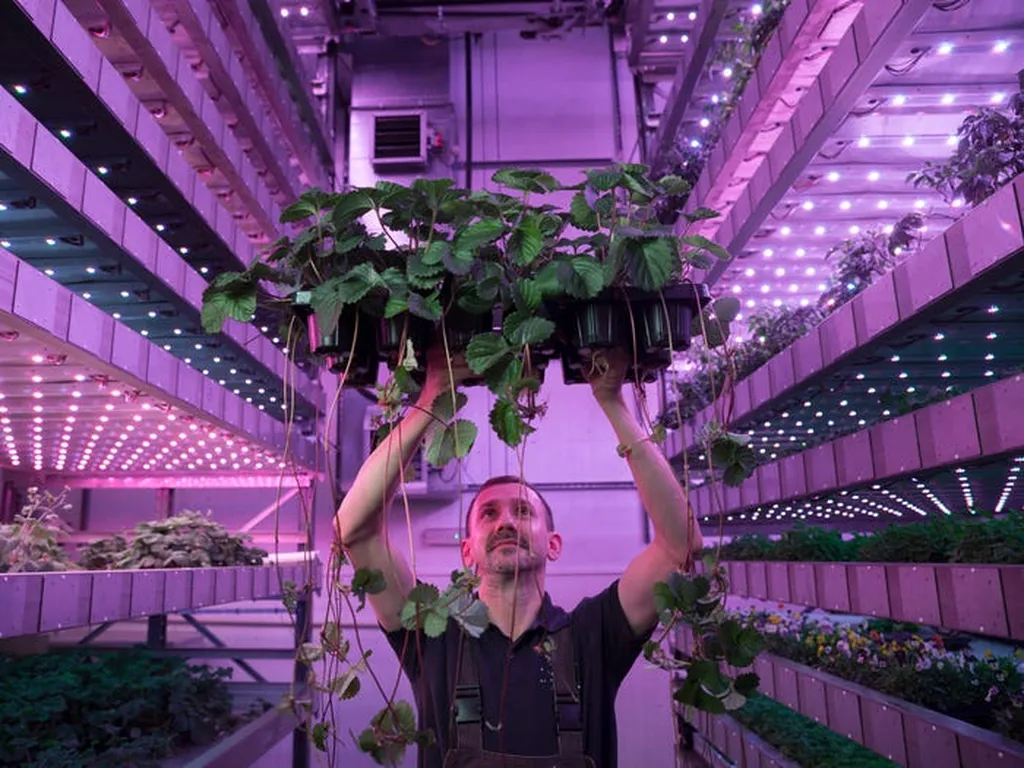In a groundbreaking study published in the journal *Scientific Reports* (translated to English as *Scientific Reports*), researchers have demonstrated that growing wheat indoors using hydroponics and artificial light can significantly boost yield and quality while reducing the need for pesticides. This innovative approach to agriculture could have profound implications for the energy sector and food production, offering a more controlled and sustainable way to cultivate crops.
The research, led by Simona Bassu from the Chair of Digital Agriculture at the Technical University of Munich, explored the potential of indoor farming systems to produce high-yield, pesticide-free wheat. The findings revealed that wheat grown indoors not only achieved higher yields but also exhibited superior bread-making quality parameters. “The unrestricted water supply and nutrients in hydroponics allowed for many mineral concentrations to be higher,” Bassu explained. “However, we observed that these concentrations declined with increasing yields.”
One of the most intriguing aspects of the study was the analysis of the microbiome inside the wheat grains. Despite the absence of soil, the microbiome richness was within the range of field-grown wheat, although the specific taxa differed among cultivars and treatments. This suggests that indoor farming can maintain a diverse microbiome, which is crucial for grain quality and health.
The study also identified differences in secondary metabolites and immunoreactive proteins between indoor and outdoor wheat. Indoor-grown wheat had a higher share of ω5-gliadins but lower shares of γ-gliadins and low-molecular-weight glutenin subunits. These findings have important implications for individuals with wheat-related disorders, such as allergy and celiac disease. “While indoor-grown wheat can produce high-yielding, high-quality grains, the food quality and health aspects associated with gluten proteins might deteriorate with further yield increases in a controlled growing environment,” Bassu noted.
The commercial impacts of this research are substantial. Indoor farming systems powered by LED lights and hydroponics could revolutionize the energy sector by providing a more efficient and sustainable way to produce food. This method reduces the need for pesticides and minimizes environmental impact, making it an attractive option for both farmers and consumers.
As the world grapples with the challenges of climate change and food security, the findings of this study offer a promising avenue for the future of agriculture. By harnessing the power of technology and innovation, we can create a more sustainable and resilient food system that meets the needs of a growing population. The research published in *Scientific Reports* paves the way for further exploration and development in the field of indoor farming, with the potential to transform the way we grow and consume food.

